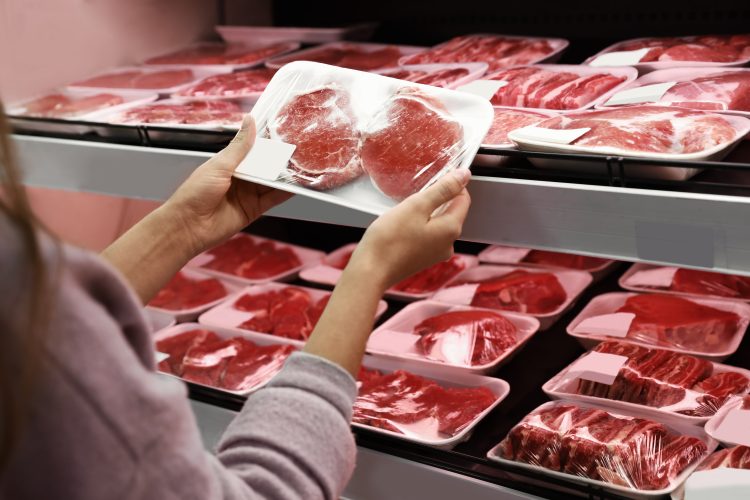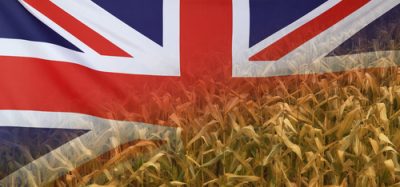Researchers find flaws in pork labelling schemes
- Like
- Digg
- Del
- Tumblr
- VKontakte
- Buffer
- Love This
- Odnoklassniki
- Meneame
- Blogger
- Amazon
- Yahoo Mail
- Gmail
- AOL
- Newsvine
- HackerNews
- Evernote
- MySpace
- Mail.ru
- Viadeo
- Line
- Comments
- Yummly
- SMS
- Viber
- Telegram
- Subscribe
- Skype
- Facebook Messenger
- Kakao
- LiveJournal
- Yammer
- Edgar
- Fintel
- Mix
- Instapaper
- Copy Link
Posted: 11 April 2024 | Grace Galler | No comments yet
Pork labelling schemes are “not helpful” when it comes to helping consumers making informed buying choices, according to researchers from various universities.


A team of researchers from various universities have carried out analysis of various types of pig farming – including woodland, organic, free range, RSPCA assured, and Red Tractor certified, to assess each systems’ impact across four areas.
The areas of analysis in this study include land use (representing biodiversity loss), greenhouse gas emissions, antibiotics use and animal welfare.
To carry out the study, a combination of authors from the University of Cambridge, University of Oxford and the University of São Paulo used data from 74 UK and 17 Brazilian breed-to-finish systems, each made up of one to three farms and representing the annual production of over 1.2 million pigs.
The study is titled “Trade-offs in the externalities of pig production are not inevitable”, and was published in the journal Nature Food. It concluded that “none of the farm types performed consistently well across all four areas”, with the researchers stating this “has important implications for increasingly climate conscious consumers, as well as farmers themselves”.
In spite of this, the study also shed light on certain individual farms “did well in all domains”, including an indoor Red Tractor farm, an outdoor bred, indoor finished RSPCA assured farm and fully outdoor woodland farm.
“Outliers like these show that trade-offs are not inevitable,” said lead author Dr Harriet Bartlett, Research Associate at the Smith School of Enterprise and the Environment, who was formerly at the University of Cambridge.
“Somewhat unexpectedly we found that a handful of farms perform far better than average across all four of our environmental and welfare measures, however, none of the current label or assurance schemes predicted which farms these would be,” added senior author Andrew Balmford, Professor of Conservation Science at the University of Cambridge.
Dr Bartlett, went on to share that she believes the way farm types are classified and how pork is labelled “isn’t helpful for making informed decisions when it comes to buying more sustainable meat.
UK Government proposes “fairer” food labelling to elevate British farmers
“Even more importantly, we aren’t rewarding and incentivising the best-performing farmers. Instead of focusing on farm types or practices, we need to focus on meaningful outcomes for people, the planet and the pigs – and assess, and reward farms based on these,” continued Bartlett.
In addition, the findings unearthed common assumptions around food labelling and the way they can be misplaced. As an example, the researchers shared that organic farming systems have (on average) “three times the CO2 output per kg of meat of more intensive Red Tractor or RSPCA assured systems and four times the land use”. Yet, these systems were also found to also utilise nearly 90 fewer antibiotic medicines on average, leading to enhanced animal welfare compared to Red Tractor or RSPCA assured systems.
Going forward, Bartlett believes “the way we classify livestock farms must be improved”, as “livestock production is growing rapidly, especially pork production, which has quadrupled in the past 50 years and already accounts for nine percent of greenhouse gas emissions from livestock. Pig farming also uses more antibiotics than any other livestock sector, and 8.5 percent of all arable land.
“Our findings show that mitigating the environmental impacts of livestock farming isn’t a case of saying which farm type is the best. There is substantial scope for improvement within types, and our current means of classification is not identifying the best farms for the planet and animals overall. Instead, we need to identify farms that successfully limit their impacts across all areas of societal concern, and understand, promote and incentivise their practises,” continued Bartlett.
Also commenting on the findings of the study, James Wood, Professor of Equine and Farm Animal Science at the University of Cambridge, “This important study identifies a key need to clarify what different farm labels should indicate to consumers; there is a pressing need to extend this work into other farming sectors. It also clearly demonstrates the critical importance that individual farmers play in promoting best practice across all farming systems.”
Related topics
Packaging & Labelling, Research & development, Supermarket, Supply chain, Traceability, Trade & Economy
Related organisations
University of Cambridge, University of Oxford, University of São Paulo









